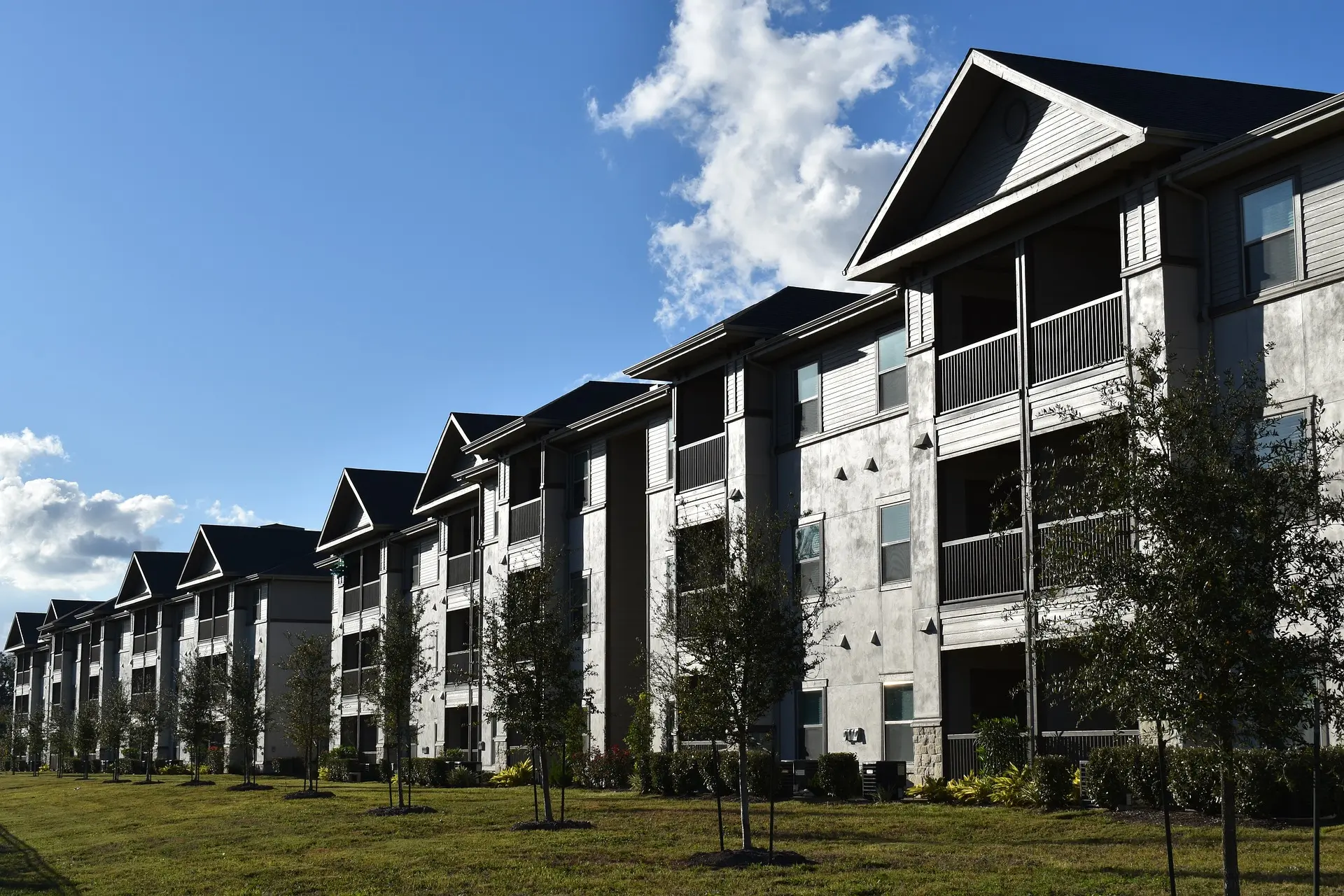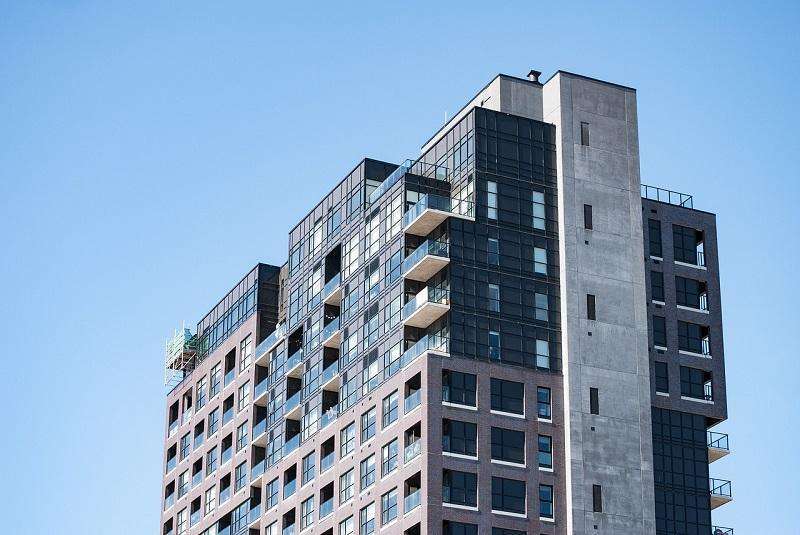9301 West Golf Rd | Des Plaines, IL 60016
Broker: Randolph Taylor rtaylor@creconsult.net | 630.474.6441
https://www.creconsult.net/golf-sumac-professional-building-medical-office-space-for-lease-9301-golf-rd-des-plaines-il-60016/

eXp Commercial is one of the fastest-growing national commercial real estate brokerage firms. The Chicago Multifamily Brokerage Division focuses on listing and selling multifamily properties throughout the Chicago Area and Suburbs.


When the CEO of Boston Properties, the largest publicly traded owner of U.S. office buildings, said last week that "commercial real estate markets are currently in a recession" regardless of the resilience of the broader economy, it reinforced the tired cliché of the past three years: This is an unprecedented market cycle.
Regarding economic growth or deceleration, commercial real estate has historically been a lagging indicator, taking longer to slow than other parts of the economy, economists told Bisnow. But this time, CRE values are dropping before the job market has cooled and consumer spending has fallen.
Even in that context, whether there is a recession in commercial real estate — or whether one is coming for the U.S. economy — depends on where you're standing.
"We are in somewhat of a unique time, to the extent that there does seem to be a wedge in between a very, very healthy job market and how that translates into demand for specific types of commercial real estate," said Victor Calanog, Moody's Analytics head of CRE economics. "To say that it is a recession for a sector as a whole, I think, at this point, is a bit of a stretch."
Recessions are deep, sustained,d and broad pullbacks from economic activity, marked by two consecutive quarters of falling gross domestic product, Calanog said. From that perspective, CRE is going through asset-specific, localized recessions, especially in the gateway cities where giants like Boston Properties have invested billions.
"I think we want to be careful and nuanced about the conversation," Calanog said. "Is there a localized recession for office properties in dense urban areas in the Northeast? I'd say that perspective is probably valid."
The four indicators that usually signal a recession — employment, spending, industrial production,n, and incomes — are holding steady in the U.S. Employers added half a million jobs in January, last week's jobs report showed. Even amid the tens of thousands of layoffs announced recently, unemployment is at its lowest point since 1969. Consumer spending fell by just 0.2% in December, and U.S. GDP grew by 2.9% in the fourth quarter.
At the same time, commercial real estate has been stuck in the mud, at the mercy of the Federal Reserve's aggressive interest rate hikes.
More than 65% of respondents to a Bisnow survey from the summer said they believed the U.S. economy was already in a recession as their deal flows stalled. By the end of the summer, Cushman & Wakefield was projecting a 20% decline in property values by the end of the year.
In the months since transaction volumes have come crashing down. Investment sales in the U.S. fell by 64% year-over-year in the fourth quarter of 2022, according to CBRE data. Bloomberg reported that approximately $175B of global real estate debt was already in distress last month.
Victor Calanog, head of commercial real estate economics at Moody's Analytics.
Lawrence Yun, the chief economist at the National Association of Realtors, told Bisnow that commercial real estate recession talk is warranted by one measure. He said that the development of everything from office towers to retail stores and industrial spaces has slowed.
“[Commercial real estate has] been subtracting from GDP figures. So in that sense, it is a recession," Yun said. "Commercial real estate is not contributing to GDP growth."
Much of the sentiment around CRE's downturn is a direct result of the rise in interest rates and the corresponding increase in capitalization rates, which drags down values. But prices hit all-time highs in 2021 when interest rates bottomed amid the pandemic, resulting in investors turning to assets like CRE that typically yield higher returns.
Commercial property sales hit a record $809B in 2021, per Real Capital Analytics data from The Wall Street Journal, beating the previous record by more than $200M.
The average price per unit on multifamily properties rose 21.6% in 2021, outpacing that year's record rent growth of 14% — which was twice the previous record, according to Yardi Matrix data.
There were $125.7B of industrial sales in 2021 and $88B last year, driven by value appreciation previously unheard of — the average price per SF for industrial properties increased by 57% between 2019 and 2022, according to CommercialEdge.
With growth like that, a correction was inevitable, Yun said.
"There was an over-optimism in commercial real estate," he said. "Now it's just coming back down to earth."
Property values peaked in March 2022, according to Green Street's Commercial Property Price Index, and have dropped by 14% since.
That reset is due to investor reactions to last year's interest rate hikes, which left developers and investors unsure how they would finance future projects and effectively ended the run of cheap money that has encouraged CRE investments over the last decade, S&P Senior Director Ana Lai told Bisnow.
"The tide has turned for the real estate sector," she said. "I think the key difference here is the interest rate level is much more elevated than the past couple of recessions. The market is resetting expectations here. So what's causing a slowdown in transaction activity."
What is happening now across asset classes is a reset on fundamental values, Yun said. However, the mismatch between what sellers believe they can get for assets and what buyers are willing to pay will mean that prices will continue to lag.
He added that if commercial real estate were broken down into asset classes, multifamily would still be considered in growth mode because the overall supply-and-demand dynamics still favor landlords.
"Definitely in the office sector, it is clearly in a recession," Yun said. "[There's a] major contraction in building new office spaces. Who would want to build office space with rising vacancy rates and reduced rent?"
Owners unsure about the remaining value of their office assets — and unable to secure new loans without additional equity — have started handing the keys back to lenders or considering conversion. Some lenders are looking to sell the loan onward.
Office assets may have a further fall, Calanog said. Despite being the darlings of the office market before and during the pandemic, tech companies like Facebook, Microsoft,t, and Amazon are scaling back their real estate plans. Like real estate investors, tech companies have spent the last decade or so growing due tof to access to cheap debt.
"They are a little bit of a canary in the coal mine as to the future of commercial real estate demand," Calanog said.
Outside the office market, there are indications that commercial real estate's downward trajectory amid economic growth could be short-lived.
"While appraisals are likely headed lower, the real-time picture of property pricing shows a market where we've either reached the bottom or are very close to it," Peter Rothemund, co-head of Green Street strategic research at Green Street, said in a statement.
The most recent jobs report and the Federal Reserve's slowing of interest rate hikes have bred optimism that the economy might avoid the same contraction in CRE values. But if unemployment rises and energy prices spike again, Calanog said real estate performance could take another, more resounding hit.
"That's when you kind of pull back on consumption; that's how the dominoes are kind of connected," he said. "And if one of [the economic indicators] falls — sentiment, jobs, consumption, so on and so forth — then we are in deeper trouble."
Source: Is Commercial Real Estate Really In A Recession? Kind Of, Economists Say
https://www.creconsult.net/market-trends/is-commercial-real-estate-really-in-a-recession-kind-of-economists-say/
There are a number of reasons why people decide to sell their multifamily property, but most can be categorized into three groups: Problems, Opportunities, and Changes.
With this decision though comes the consideration of capital gains tax and how to ensure you are getting the most for the sale of your property.
There are several reasons why people do sell:
Problems:
Opportunities:
Changes:
There are several options for sellers to defer or minimize capital gains taxes:
We not only market properties for sale. We make a market for properties we represent. Each offering is thoroughly underwritten, aggressively priced, and accompanied by loan quotes to expedite the sales process. We leverage our broad national marketing platform syndicating to the top CRE Listing Sites with direct outreach to our investor database and an orchestrated competitive bidding process that yields higher sales prices.
Contact Us to discuss what information is needed to complete a Complimentary Commercial Broker Opinion of Value (BOV).
This is understandable as only about 5% of the market trades in any given year. We are also happy discuss any purchase or refinance interests and recommend some physical and operational changes you can make to add value to your property you will appreciate when you eventually sell.
eXp Commercial Chicago Multifamily Brokerage focuses on listing and selling multifamily properties throughout the Chicago Area and Suburbs.
We don’t just market properties; we make a market for each property we represent. Each offering is thoroughly underwritten, aggressively priced, and accompanied by loan quotes to expedite the sales process. We leverage our broad national marketing platform syndicating to the top CRE Listing Sites for maximum exposure combined with an orchestrated competitive bidding process that yields higher sales prices for your property.
https://www.creconsult.net/market-trends/why-should-i-sell-my-multifamily-property/

One of the biggest suburban apartment landlords in the U.S. and one of the most active dealmakers in the Chicago area spent nearly $23 million to acquire a vintage Naperville asset.
A San Francisco-based FPA Multifamily affiliate founded by Greg Fowler bought the Sherry Apartments at 1821 South Washington Street in one of the city’s most populous suburbs, public records show.
The seller, Chicago-based Legend Group, held the 164-unit complex for 20 years since acquiring it for $12.6 million in 2002. The firm is led by Ralph Robbins, Sheldon Ashman, and Allen Shechtman. Neither party responded to requests for comment.
The exact price of the sale to FPA was $22.7 million and broke down to a little more than $138,000 per unit.
While it’s a more minor deal than FPA usually makes in the Chicago area, the three-story property built in 1975 fits the mold of many of the firm’s purchases. The company has a penchant for buying older apartment complexes, holding them for a few years while making some upgrades to units, and then selling them for added value.
A construction mortgage signed by FPA chairman Michael Earl for an $18.5 million loan against the Sherry Apartments from Wisconsin-based WaterStone Bank suggests the new buyer plans to invest in renovation work on the property.
In August, FPA sold a 571-unit Bensenville apartment complex called, ReNew on York, built in 1974, for $106 million after buying the property for $75 million in 2019. DRA Advisors was the buyer.
And earlier last year, FPA also sold the 662-unit Rolling Meadows for $111 million after spending $72 million to buy it in 2017. Within Chicago proper, FPA also recently purchased the 304-unit West77 in the River North area at 77 West Huron Street from L&B Advisors for $89 million, handing a rare slight loss in value on multifamily in the Chicago area to the seller L&B Advisors, who had spent $90 million to buy the building in 2011.
FPA’s series of transactions have accounted for around 130,000 units across the nation since it was launched nearly 30 years ago, according to its website.
Source: FPA Multifamily Buys Naperville Apartments
https://www.creconsult.net/market-trends/fpa-multifamily-buys-naperville-apartments/
In 2022, the Federal Reserve raised interest rates seven times, prompting industry leaders to anticipate further hikes in 2023. A recession was expected to be on the horizon, with inflation remaining high. As a result, multifamily owners began taking preemptive actions to reduce costs to prepare for a challenging economic period.
Recessions are nothing new to the American economy, and some industries have proven resilient during even the most challenging times. The multifamily property industry has shown this resilience through five recessions in the last forty years while also surviving a global pandemic that crippled many other sectors.
What strategies are owners and operators in the multifamily industry employing today to maintain their profit margins in the face of volatile economic times? Here are some ways to sustain success in the multifamily sector despite uncertain financial conditions.
With a possible recession looming, the future of the multifamily property industry may appear uncertain. But if past performance is any indication, the future is brighter than you might think. Owners and operators will inevitably need to implement cost-cutting measures to survive. However, a recession presents a unique opportunity that, if seized, can help businesses secure long-term growth and sustained profitability.
After two years of remarkable growth, the multifamily industry is now experiencing the effects of a slowdown. While rents had been steadily rising, they are now stabilizing, leading owners to search for ways to recover their diminishing operating income.
One solution that many owners gravitate toward is PropTech. PropTech effectively increases efficiency and appeals to tenants, allowing property owners to stay competitive in the market despite economic changes. This is evidenced by the 82% of residents wanting to live in apartments with intelligent devices.
Investing in thoughtful amenities, such as intelligent access control, smart thermostats, and self-guided tours, became popular during the COVID pandemic. At the same time, more than 62% of property managers consider optimizing their operations to gain efficiencies as one of the biggest challenges they face. Intelligent tech-enabled automation can increase operational efficiencies and reduce staff payroll while effectively maintaining the property.
Self-guided tours also allow for extended viewing hours, and more prospects can be hosted on average. This generates more turn-around opportunities, which can increase lease signings and help properties stay competitive despite market turbulence.
PropTech doesn’t just address resident demands. It addresses the needs of owners and operators to reduce costs, appeal to tenants and streamline operations.
As the market fluctuates and rents flatten, business owners in every sector will look to cut costs however they can. Time and time, multifamily owners have restructured their operations with intelligent tech to maximize property efficiency and solidify their resilience in uncertain conditions.
Intelligent automation technology, for instance, allows owners to centralize their leasing operations and decrease the number of employees needed to run each of their communities. Powerful self-guided touring technology and intelligent access control systems allow staff to grant prospective residents on-site access remotely and with just a few clicks. No longer do properties need to over-hire to maintain their performance; in fact, many communities experience greater NOI after automating just a portion of their day-to-day operations.
This concept also applies to site-wide energy management. Smart thermostats can be placed inside vacant units and modified by staff remotely, reducing the labor required to adjust settings manually. More significantly, each property can dramatically reduce its energy consumption in these unoccupied units by toggling smart thermostats off when not in use. These immediate savings are a valuable way to offset the adverse effects of a recession.
Residents can save on their energy bills if they have smart thermostats installed in their apartments. They can precisely manage their year-over-year energy usage to deduct as much as 10% to 12% from their heating bills and 15% from their cooling accounts. By providing value to your residents through these savings, you’ll increase your retention rate, which becomes even more critical to your success when attracting new residents becomes more difficult.
Multifamily owners can earn an advantage over their competitors during a recession by upgrading their legacy buildings with intelligent tech.
While a pool and tennis court are nice community perks, data consistently shows that today’s renters are primarily attracted to innovative tech amenities that make their day-to-day lives easier. Smart tech appeals to today’s renters because it offers them instant conveniences without stress and from anywhere. Meanwhile, owners who implement smart tech manage their assets more efficiently, retain more residents on average, and decrease operational drag and overhead costs.
Given its unique value and benefits, smart tech should no longer be considered a “secret weapon” but an essential tool for multifamily owners and operators to implement, regardless of market conditions.
Source: Multifamily’s secret weapon against recession? Proptech – REJournals
https://www.creconsult.net/market-trends/multifamilys-secret-weapon-against-recession-proptech/

The Commercial Real Estate Symposium will provide junior and senior agents and brokers with valuable insights on topics, including: international opportunities, capital and funding for small businesses in today’s market, how to attract investors, and much more.
Dates: April 25-26, 2023
Start Time: 9 a.m. - 4 p.m. CST
Location: eXp Commercial Campus
We look forward to seeing you in the metaverse!
Important: Please download the virtual eXp Commercial Campus prior to the event, and follow the instructions to login and create your avatar. Feel free to explore the campus before the event begins.
eXp Commercial Presents: The 2026 CRE Economic Outlook Navigating the 2026 commercial real estate landscape requires a strategy grounded in ...